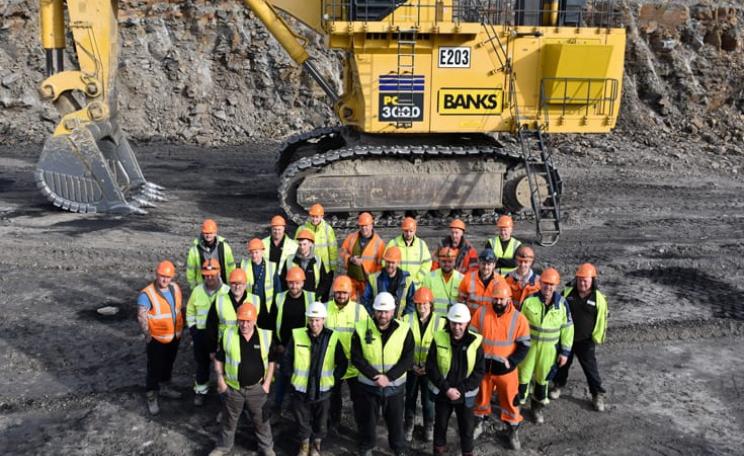This decision will hopefully bring down the curtain on opencast coal mining in England.
A decision by planners to block an opencast coal mine should signal the end of the practice in England, Friends of the Earth have said.
Newcastle City Council rejected Banks Mining’s application to extract 800,000 tonnes of coal from a site at Dewley Hill near Throckley.
In September, the UK Government rejected a controversial planning application for an opencast coal mine near Druridge Bay, Northumberland, with the official report saying it was “not environmentally acceptable”.
Opencast
Earlier this year Banks closed what it said was England’s last coal mine, at a site north of Newcastle.
Now Friends of the Earth said the Newcastle decision should be the final nail in the coffin of opencast coal mining in England.
Its North East campaigner Simon Bowens was delighted, saying: “Opencast coal doesn’t just threaten our landscape and biodiversity.
“Adding to the global supply of coal would lead to more being burnt and more climate-wrecking emissions pumped into our atmosphere.
“This decision will hopefully bring down the curtain on opencast coal mining in England.
Cost
“The focus should now be on developing the clean energy solutions that can power our economy and create the new green jobs of the future.”
The campaigners are now asking the Government to call in Cumbria County Council’s decision to allow a new deep coal mine to go ahead near Whitehaven, extracting coking coal from beneath the Irish Sea for steel production.
Jeannie Raine, community relations manager at The Banks Group, said: “Newcastle City Council identified Dewley Hill as the only minerals site in the city less than six months ago.
“Given this fact, it is outrageous that, in the height of the worst economic crisis of our generation, its planning committee has decided to dismiss over 200 existing, well-paid North East jobs and has not grasped the opportunity to support a £75m investment in the regional economy which would secure local supplies of much-needed minerals at the lowest environmental cost.
Emissions
“The committee heard, but did not listen to the indisputable fact that there will be continued demand for industrial coal and fireclay for use in UK steel, cement and brick manufacture, and we remain firm in our belief that these minerals should be mined locally in the UK in the safest, most efficient and most environmentally responsible way possible.
“The acute need of the Throckley Brickworks for fireclay could not be met with a lower environmental impact than through the adjacent Dewley Hill site, and its owners Ibstock Brick have clearly repeated how much of a devastating blow its rejection would be in terms of production, local employment and investment.
“The committee members also chose to ignore warnings from both Unite the Union and the Heritage Railway Associations that failing to make use of domestic supplies will force UK industry to drag the coal across the globe while simultaneously significantly increasing global greenhouse gas emissions – and all in the name of a simplistic view on climate change.”
This Author
Tom Wilkinson is a reporter with PA.





